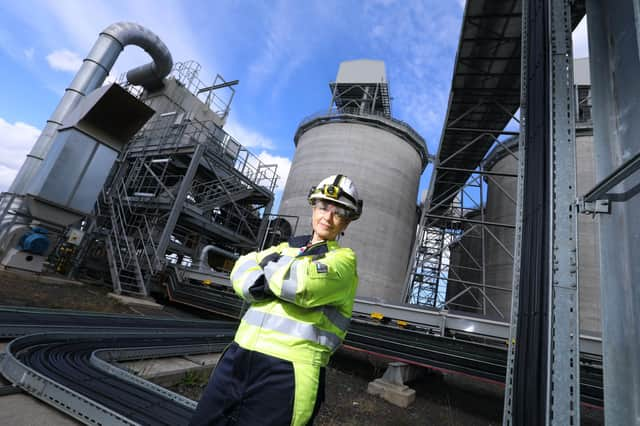Northumberland power station joins international community in net zero ambitions


The signed declaration outlines the indispensable role that bioenergy will play in net zero ambitions agreed by the international community during the summit.
It sets out a vision for the sustainable growth of the bioenergy sector to 2050 and reaffirms the ongoing commitment to sustainability principles including the management of natural resources, carbon accounting and protecting biodiversity.
Advertisement
Hide AdAdvertisement
Hide AdLynemouth Power Station was the first UK coal-fired power station to fully convert to biomass electricity generation, and has made significant progress to date having recently reported emissions 43% below grid average for 2020-21.
Fiona Macleod, managing director of Lynemouth Power Station, said: “We’re facing a climate challenge and to reach net zero by 2050, we must do more.
"The Glasgow Declaration brings together key players in the biomass supply chain – from sustainable forestry through to the pellet producers, the shippers and ports to the electricity generators – all combining to reaffirm our commitment to work together to meet the net zero challenge and the international commitments made during COP26.
“We have achieved a lot so far, especially at Lynemouth, and have a solid base upon which to build.
Advertisement
Hide AdAdvertisement
Hide Ad"Therefore, we want to make the maximum possible contribution to net zero by realising the full potential of sustainable bioenergy.”
Fiona added: “Forests are nature’s rechargeable batteries – trees use energy from the sun to capture carbon dioxide from the air, fixing it as woody biomass.
"For millennia, humans have been using wood to keep warm, building shelters and lighting fires, and the carbon released back into the atmosphere when wood is burnt or decomposes can be absorbed by new plant growth in a cycle.
“Biomass is a way of storing solar energy.
"When it’s still and dark, when there’s no wind or sun, we still need heat, light and power. We may even see demand for electricity grow during these periods as heating migrates from natural gas and transport moves from internal combustion engines to electric vehicles.
Advertisement
Hide AdAdvertisement
Hide Ad"Therefore, the role of power stations such as Lynemouth in contributing to the decarbonisation of the electricity sector is to provide reliable, low carbon electricity generation at any time, day or night, alongside other renewables.
“But there is a need for close cooperation with the forestry sector. Once you think of biomass as a solar energy store, it becomes clear just how important sustainable forestry is.
“Biomass power stations don’t generate electricity from otherwise useful timber.
"Instead, they take the residue from sustainable forestry such as bark, twigs and thinnings, and from the sawmills – sawdust and offcuts, transforming what would otherwise be waste into useful biomass pellets.
Advertisement
Hide AdAdvertisement
Hide Ad"This therefore increases the value of working forests by providing an income for lower-value fibre.
"An increase in the active management of forests improves their health and protects against the threats of disease, wildfire and infestation.”
She added: “Biomass has already provided a significant contribution towards decarbonisation of UK electricity generation, and the Government has recognised that, as a minimum, this needs to continue and where possible expand.
"We are making great progress in understanding what continued operations look like for Lynemouth after 2027 and how this fits into the wider net zero ambition.”